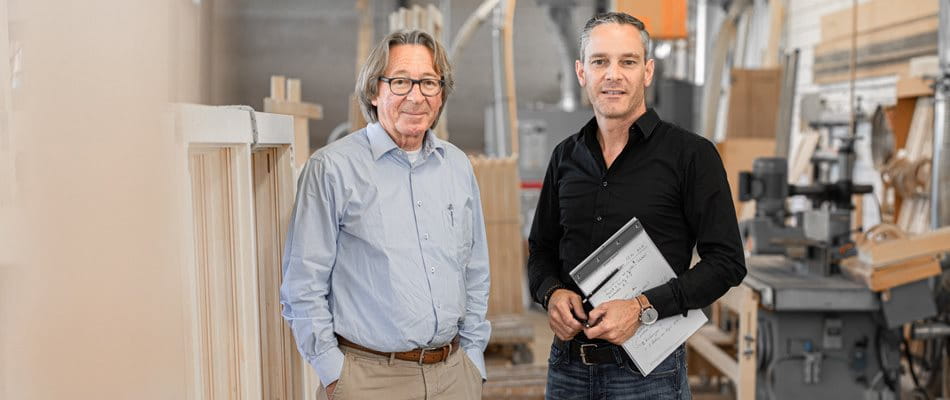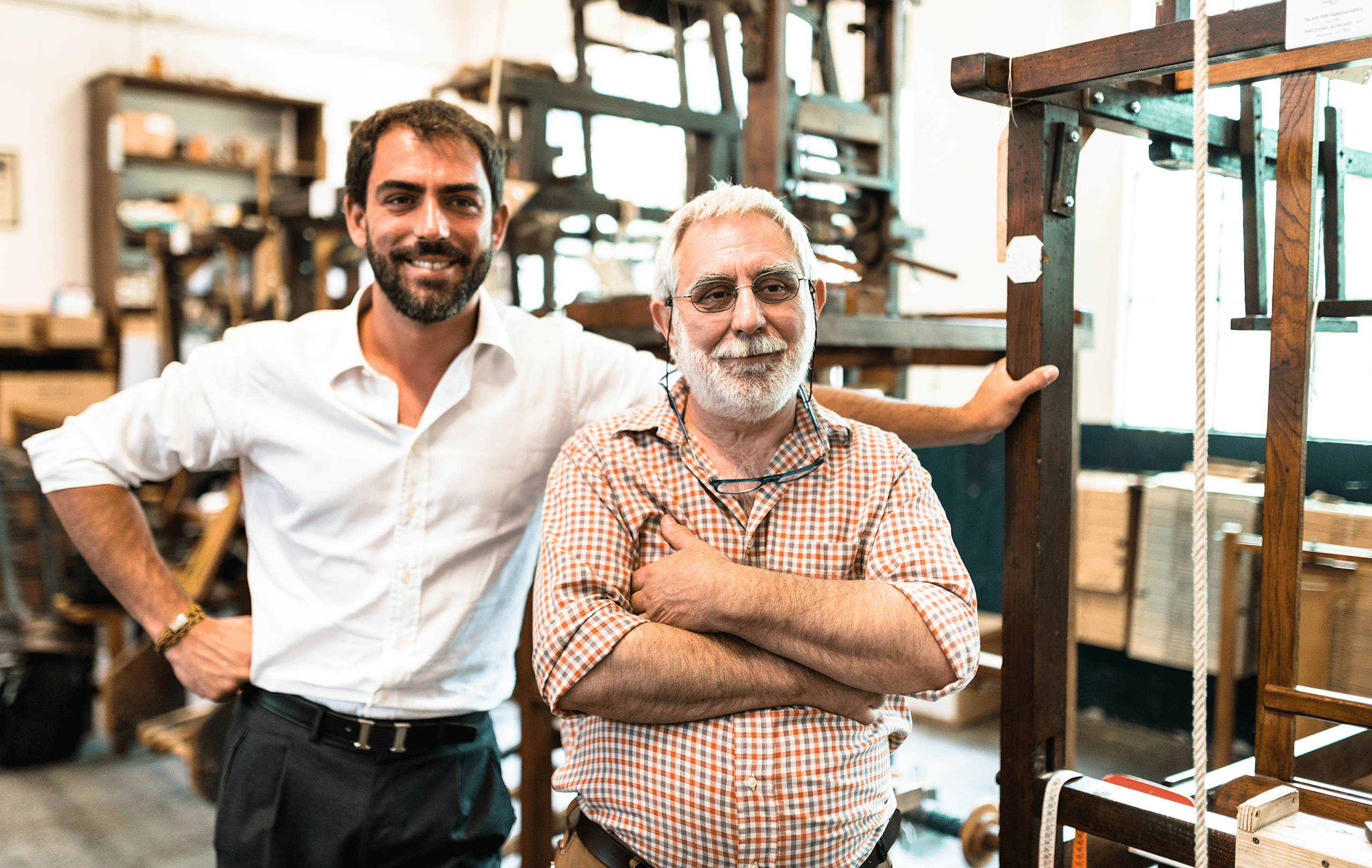
The son also had to start at the very bottom
Before Raffael took over his father's company, he completed his apprenticeship outside the family business. At the age of 23, he finally started as a service technician at Schmid Fenster and passed through various positions. «It was clear to me that my son also had to start at the bottom», Sepp says. «It's the only way to get to know the trade and the business from the ground up.» For Raffael, it was also not certain that he would take over his parents' business. There were other professions he could have considered. What he didn't have in mind, though, was to stay in a carpenter's workshop. «I wanted to combine craftsmanship with creativity. This offered me a unique opportunity, for which I am very grateful», says Raffael. He never felt any pressure, but his connection to the company certainly influenced his decision.
«There were times when I could have thrown it all away»
Father and son ran the craft production house together. Their working relationship was not always harmonious. Successful cooperation requires open dialog, as well a healthy culture of conflict and failure. Raffael remembers: «At times I could have thrown it all away. It's not easy starting off in your parent's business. I was watched like a hawk.» After all, the father wanted to pass on his life's work with a good feeling and be absolutely sure that he was doing the right thing: Does the son have what it takes to lead the company into the future? And above all: Does he embody the company values? Sepp smiles: «Early on, I gave Raffael responsibility to help him get to grips with the company. Of course, I also put him to the test, for I knew his youthful bravado.» When it was clear to both that an internal family succession would work, Sepp was able to let go. Today he finds that Raffael is the better boss – he has more courage when it comes to change.
The ideal time for a handover
Determining the right time to hand over a family business is not easy. But Patron Sepp had concrete ideas for this: If possible, he didn't want to hand over the business until he was 65. He began with the actual planning of his succession at the age of 60, which is rather late. Experts advise beginning succession planning as early as possible, but this is not true for everyone. For Sepp and Raffael, the handover was not very spectacular. The father studied the relevant literature, while the son attended seminars, before both finally consulted with their trustee, banker and tax expert. «The regional banks knew the company. This made a lot of things easier», Raffael adds. When handing over a family business, there is always the issue of treating all offspring equally. «The most demanding aspect was communication within the family», stresses Sepp. «It's very important to trust your gut when making the handover.»
There's no such thing as «can't do»
The first year after the handover was less successful than expected. The handover process had required more resources than previously thought. «For me personally, this was an enormous burden and at the same time frustrating», Raffael remembers. The young boss had invested in the machinery and vehicle fleet right from the start. He had to replace employees due to age. This was also an ideal opportunity to review the occupational retirement provision solution together with his pension expert and adapt it to the new structures. In sticking to the motto «there's no such thing as can't do», Raffael increasingly accepted orders from other regions as well. And these efforts paid off: After a demanding first year, the company began to grow further. In January 2019, about five years after the handover, Raffael ultimately changed the company's legal form. Today, Schmid Fenster Manufaktur is an incorporated company. Some things have changed, but Sepp, now 70, still works in the company on a daily basis. He devotes himself to his great passion – restoration – taking on special assignments and still cultivating his customer contacts. If there's an emergency, he'll jump in. Raffael can count on his father. When asked how long he wants to continue working, Sepp grins mischievously: «Actually, I could wind things down slowly.» Letting go isn't a problem. Because Sepp knows that the craft production house is in the best of hands.


